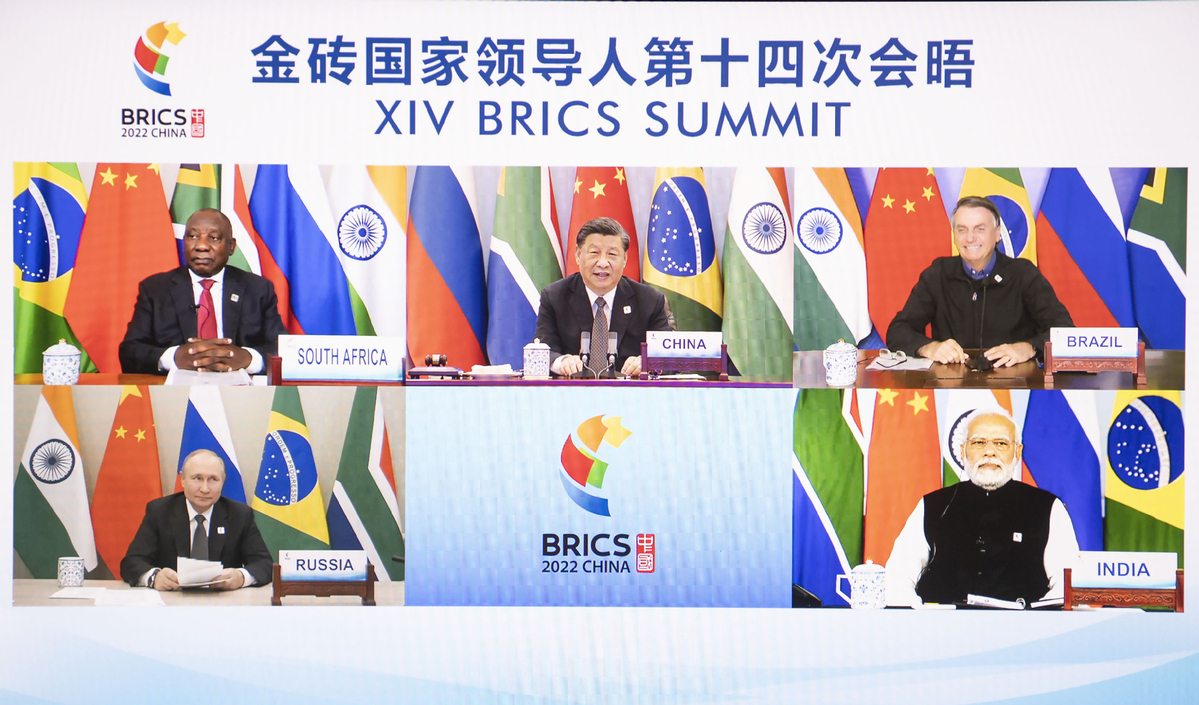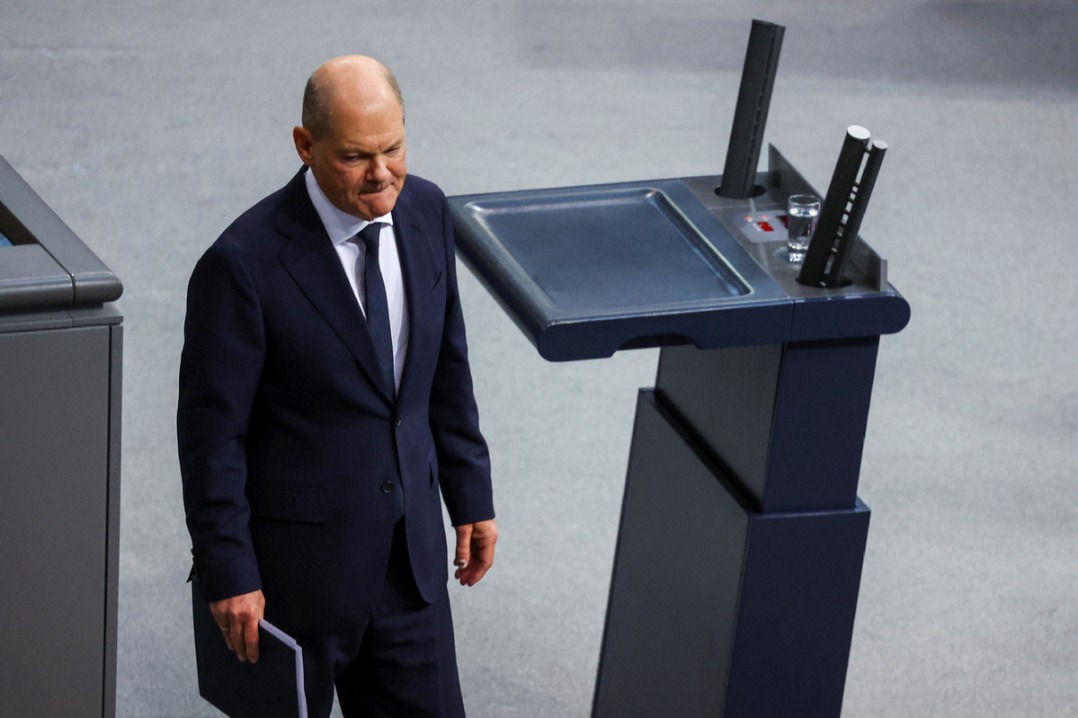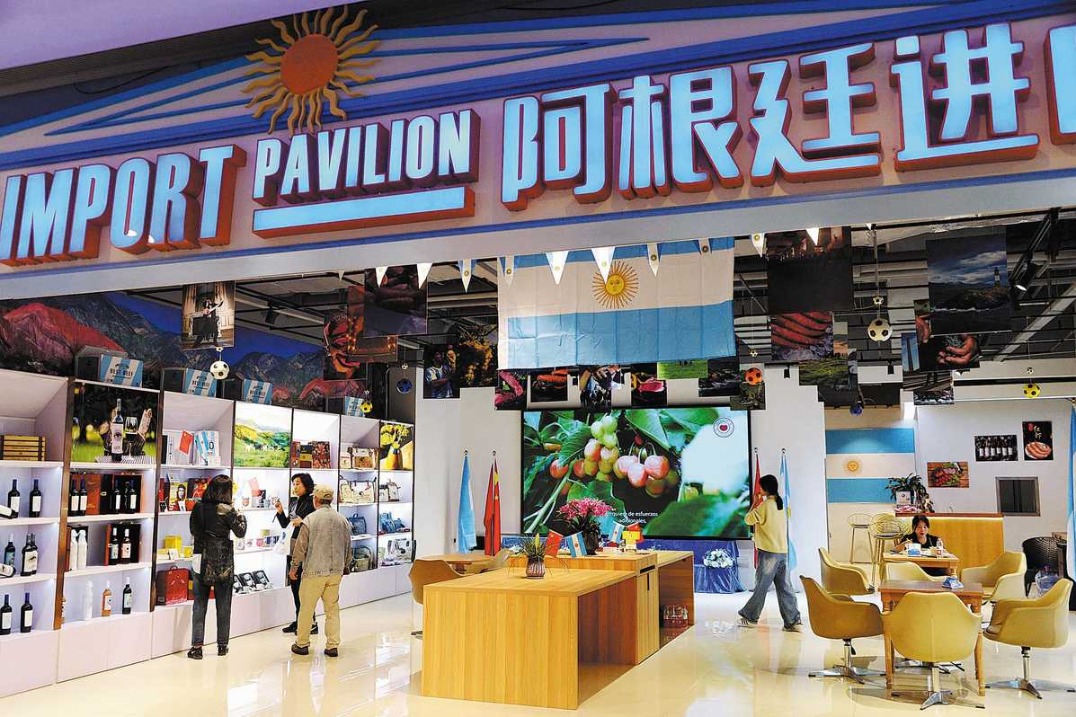Brazil sees diverse benefits in summit


Brazil attaches enormous importance to cooperation among BRICS countries in areas such as economy and finance, trade, health and vaccines, science and technology, and the fight against terrorism and transnational crimes, said the nation's top envoy to Beijing.
Paulo Estivallet de Mesquita, the Brazilian ambassador to China, said the 14th BRICS Summit is "an opportunity to reaffirm our commitment to work together and to explore new fields for cooperation, addressing common challenges we face and bearing in mind the ultimate objective of promoting the well-being of our peoples".
The summit, hosted by Chinese President Xi Jinping via video link on Thursday, brings together leaders from Brazil, Russia, India and South Africa.
Mesquita said BRICS is a very relevant diplomatic mechanism that has shown its ability to adapt and respond to new challenges. "The intense dialogue BRICS countries have been keeping in the past 16 years allowed us to create an agenda of our own, which stems directly from our position as big developing countries from around the globe," he said.
He gave the example of the New Development Bank, which already holds a robust investment portfolio in areas such as sustainable infrastructure, urban development and clean energy, and included Bangladesh, Egypt, United Arab Emirates and Uruguay as its new members.
BRICS have also teamed up on vaccine research as the members jointly launched a BRICS Vaccine R&D Center in March.
The Brazilian envoy also spoke highly of ties between Brazil and China, saying that the last decade was "transformative" in bilateral relations. "We have achieved some extraordinary economic results and deepened our political dialogue," he said.
Trade between China and Brazil reached a historic high of $135 billion last year, and China has been Brazil's largest trading partner since 2009, and Brazil is China's third-largest trading partner in the West, after the United States and Germany.
Mesquita explained that Brazil is now China's main provider of food products, with about 20 percent of China's agricultural imports now coming from Brazil's agribusiness sector.
"Brazil is also a reliable provider of key commodities such as oil and iron ore, indispensable for China's development. In turn, Brazil has also benefited from imports of a range of different products from China," he said.
The two nations have also launched six satellites under the China-Brazil Earth Resources Satellite program, and both sides are already working on the next generation of satellites.
He added that China's vaccines and pharmaceutical sector have helped Brazil fight the COVID-19 pandemic, and the nation is eyeing closer links between Chinese and Brazilian tech companies.
"China is the second country in the world when it comes to the number of unicorns, while Brazil ranks ninth," he said.
"We want to further explore synergies in that area."
































